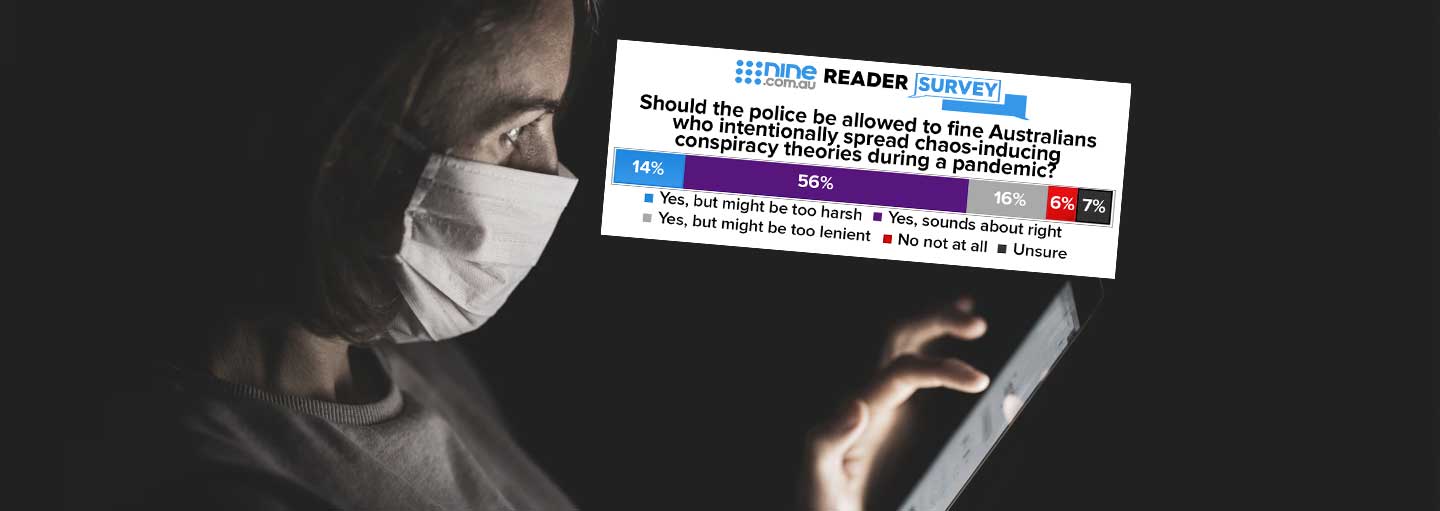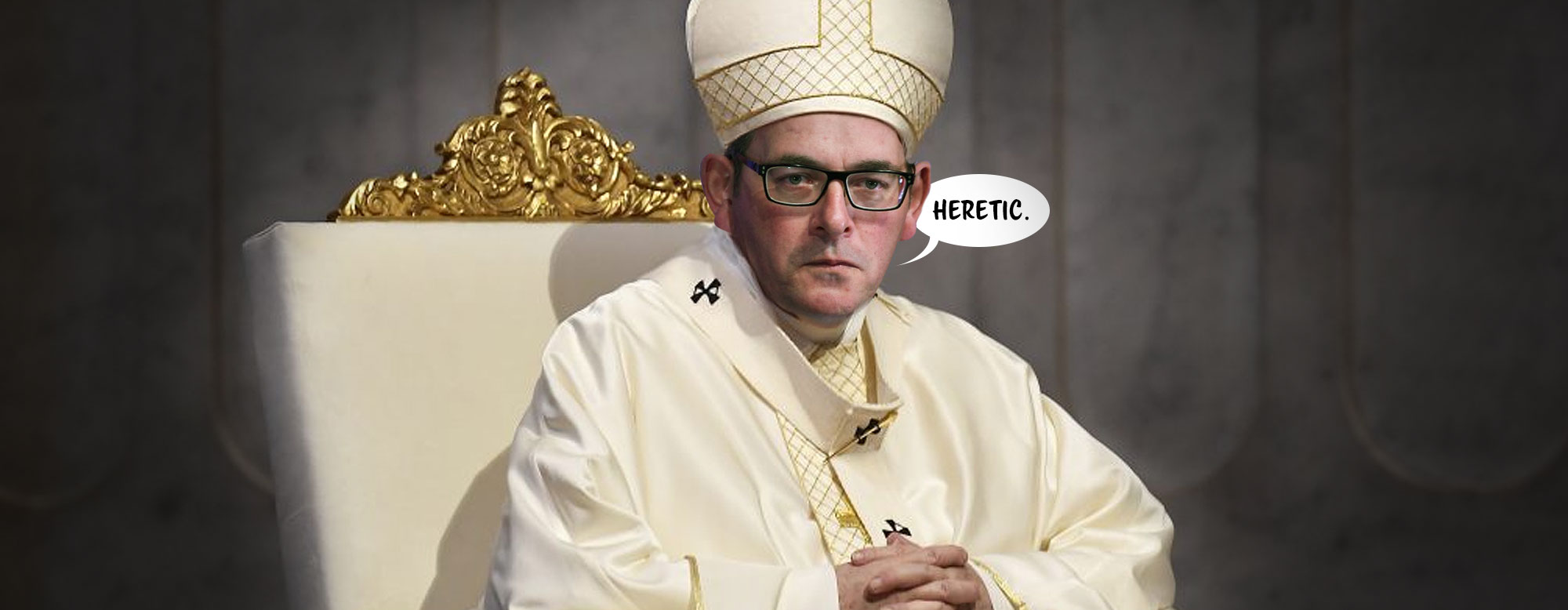“And some of the wise shall stumble, so that they may be refined, purified, and made white, until the time of the end, for it still awaits the appointed time.” Daniel 11:35
The worldwide Covid-19 pandemic is the severest test of our generation. The Christian church specifically ought to consider the calamities of the past eighteen months as part of a painful trial that God has inflicted upon his church in order to refine her. Since both individual Christians and the church universal never reach a perfected state in this world we are constantly subject to tests that expose our shortcomings. As the church has been forced to respond to the Covid crisis, Christian leaders have had to make ecclesiastical decisions, navigate ethical issues, and counsel their members on how they should appropriately act. In spite of their good intentions and best efforts, I believe that the pressures of Covid-19 have exposed a number of weaknesses in our theology and ecclesiology that require reexamination and recommitment. To paraphrase the book of Daniel 5:25-28, we are a church that has been weighed, measured, and found wanting.
We should use this Covid experience as our refining fire in order that we may discover where our deficiencies lie and make the necessary changes. Instead of self-justifying and denying our sins, we should humbly assess our decisions, confess our failings, and profess a renewed obedience. I am a Christian pastor who had been responsible for pastoring a church during this season. I write from a position of grief at the church’s present failings and remorse over my past failings. The ultimate aim of this writing is not condemnation but reformation. Though the provenance of this essay is under home-confinement orders in locked-down Australia, its message extends to the wider church. Under seven rubrics I would like to highlight a number of areas in which the church has shown itself to have fallen short in its practice and principles. Martin Luther began his 95 Theses with the assertion that, “When our Lord and Master Jesus Christ said, “Repent!” he willed the entire life of believers to be one of repentance.” Jesus Christ said,“those whom I love, I reprove” (Rev 3:19). Let us embrace a spirit of humble repentance as we examine how we have measured up during the pandemic and how we should acquit ourselves henceforth.
Spirit of Fear
When Covid-19 struck in early 2020 the response of world governments and the public was excessive and palpable fear. No one was certain how lethal the disease was, so as a precaution nations closed borders and locked down their people. Fear motivated every decision. Indeed, to not be fearful was considered a sign of recklessness. As more data became available, it was determined that Covid was fatal primarily to the very elderly and unhealthy, which were generally the same category. The medium age of Covid death in Australia as of October 2021 is 84 years old [1]. The aggregate case-fatality-rate among economically developed countries is around 2% (Australia: 1.1%; USA:1.6%)[2]. In age groups under 60 years old, the recovery rate for Covid in Australia is about 99.9%[3]. The vast majority of people who get Covid suffer mild symptoms and recover. Only a small minority of cases require hospitalisation or ICU care[4]. In spite of these encouraging statistics, our societal leaders were able to effectively cultivate and maintain a culture of fear. The level of panic in the public is incommensurate with the lethality of Covid.
One could understand how a secular people without hope and without God in this world would be susceptible to fear, yet the church herself has fallen into a similar panic. Despite the plethora of biblical injunctions to “fear not!” the church, on the whole, has not exhibited a robust spirit of courage. It is understandable that churches populated by the elderly would be particularly cautious, but elderly saints should be exhibiting more faith than those who have journeyed fewer days. One esteemed elder in my church in the early months of 2020 did not leave the bounds of his hobby farm for over two months and did not let anyone onto his property for six months. The baseline attitude of Christians should be bold trust in God in the midst of a dangerous world. The Christian knows that God watches over them, is with them, and keeps them throughout the course of their journey, so they should not be paralysed with fear by a respiratory disease. Most of all, a Christian should have no fear of death. Biblical testimony and empirical evidence have proven that the inevitable end of all humanity is death, so after our “seventy or by reason of strength eighty” years of life (Ps 90:10) we expect to return to the dust. Christians should therefore exemplify a wisdom and assurance in the face of the prospect of death. An essential axiom of the faith is that in Christ one has eternal life and that the next world—not this one—is our true home. This fear of death rife in the church undermines the core truth of the gospel which is “to live is Christ and to die is gain” (Phil 1:21). What does it say about our teaching and preaching ministry if our people cling to this life and have a frail assurance of their eternal salvation? The teachers of the church need to reinforce the Christian affirmations of the brevity of temporal life, the reality of judgment, and the hope and certainty of eternal life in Christ.
In addition to the disease itself, the fear of people is rampant in the church. One of the arguments for full compliance to public worship closure was that the wider public would deem an assembled church a threat to its safety. Our public witness or testimony became a prevailing concern in our deliberations. Church leaders have also been afraid of their own congregation’s opinions on Covid compliance. The divergence of perspectives on the proper Covid response has threatened the peace and unity of the church. Not only ministers and elders but also congregation members have fretted over what other members will think about their own level of personal compliance. Christians have to then subtly ascertain how strict or free other Christians are in their compliance to health measures in order to reestablish relationships. The government’s social-distancing mandates have solidified in our minds that social interaction with people puts us at risk. Covid-positive people have become the new lepers—“Unclean! Unclean!” And now everyone who is unvaccinated is seen as a de facto Covid carrier. How can we fellowship as a church when every individual is seen as a threat to your life? Fear has fractured the bonds of Christian fellowship.
Health Idolatry
Of paramount importance throughout the pandemic has been the issue of public health. The church has accepted the world’s principle that remaining alive is the summum bonum of living. Christian theology, however, has always asserted that eternal life takes precedence over temporal life. When Jesus was tempted by Satan to turn the stone into bread, he asserted that to live by God’s word was more important than to “live by bread alone” (Luke 4:4). Obedience to God was more important than staying alive. The spiritual trumps the physical. However, the government’s restrictions on public worship prioritise human safety over all other considerations. To not congregate, sing, or partake of sacraments is justified by the need to preserve physical life. The church has concurred with the state’s perspective by its willingness to set aside the ordinary means of grace lest there be any potential threat to the life of a congregant. We, ministers, need to reconsider how important is the preservation of human life within the whole course of Christian discipleship. The testimony of Christians who take up their cross (Mat 16:24), are faithful unto death (Rev 2:10), and consider God’s love more valuable than life (Ps 63:3) stands in stark contrast to the world which is demonically enslaved by its dread of death (Heb 2:14-15).
Very disturbingly, the public health orders of the government have become an omnipotent tool that the government has used to supplant any ordinary right or prerogative in society. Our society is ruled by an army of “-ologists.” Under the warrant of public health, the government has been able to close off international travel, lockdown society, separate families, limit public assembly and protest, close worship, and shut businesses and schools. Since society at large fears Covid and privileges public health, the populace has permitted the government to take complete control of their lives. The health orders are like a giant Trojan Horse that we have welcomed into our city. If a communist or progressive government made a direct attack against Christian assembly the church would undoubtedly fight back. If the government were to close our churches due to ideology, we would publicly resist—or go underground. Yet, when the government closes our churches due to health orders, we submit without question. Though the motives may be different, the end is the same. The state has found an effective mechanism by which the church will cede its sovereignty.
The church needs to consider how we have established a dangerous precedent that public health warrants can be routinely used to restrict and suspend church gatherings and practices. Is public health a justifiable grounds by which the state can exercise absolute control over the affairs of the church? Having established a precedent on physical health grounds, the state can easily transition to further control of doctrinal issues on the basis of mental health. Church leadership needs to establish the boundaries of health restrictions on church practice and also standards by which the government should justify its restrictions.
Submitting to Caesar
Under the government health orders, the church has felt that it has had no option but to obey. Both the Bible (see Rom 13:1-7: Tit 3:1; 1 Pet 2:13-15) and our confessional documents (see Westminster Confession of Faith, Chapter 23: “Of the Civil Magistrate”) assert the duty of the church to submit to human rulers, i.e. “the civil magistrate”. The obligation to “render unto Caesar the things that are Caesar’s,” (Luke 20:25) has been a hallmark of Christian citizenship for two millennia. The contemporary church recognises that the state has a legitimate interest to protect its citizens, so it has supported the state’s involvement in church matters as they relate to child protection, building regulations, and tax and accounting law. Since the government has imposed restrictions on the basis of public health and not ideology, the church has bent over backwards to show its support of measures that further the public good. In the initial stages of the virus, church leaders closed the doors, since they were fearful of the unknown dangers of this Covid and expected that the suspension of services would only last a few weeks. In good faith, the church has aimed to demonstrate that its dutiful compliance has aided the state’s goal of public welfare.
The church’s compliance with the health regulations is, however, not merely about voluntary compliance but authoritative submission. Though government leaders may have spoken softly, they still carry a big stick. At the end of the day, the church is required to submit irrespective of its views. The church may put on a facade of voluntary compliance, but its leaders know that they don’t have a choice—at least not without a cost. Noncompliance to health orders carries immense penalties such as hefty fines to the primary stakeholders in the church, personal legal liability to leaders if a person dies of Covid, and possibly criminal prosecution for unlawful assembly. Not many elders and ministers, regardless of their convictions, are able to withstand the enormous pressure that comes from the government, ecclesiastical authorities, public opinion, and from within the congregation itself. If a pastor were to make a principled stand and disobey public health orders the most likely outcome for him would be a charge of ministerial misconduct and contumacy to the ecclesiastical authorities coupled with a loss of income, housing, and ministerial career prospects. The upholding of genuine convictions carries a significant cost.
The church has yet to determine the bounds, limitations, and duration of the state’s newfound health authority. As much as the church affirms the right of the civil magistrate to adjudicate its affairs within its sphere of responsibility, it also asserts that government authority is not absolute. The state’s edicts have ethical and ecclesiastical limits. Citizens, especially Christian citizens, are under no obligation to comply with government laws that violate God’s moral law. The second half of Christ’s injunction—“[render] unto God the things that are God’s”—is still perpetually binding upon the church. The civil magistrate has no absolute authority over internal ecclesiastical matters, especially the doctrine that is to be taught and how worship is to be conducted. With respect to the latter, that has already occurred in Covid health restrictions: no gathering, no singing, no sacraments. If we accept the premise that the government, even with a health warrant, does not have unbounded authority over the affairs of the church (Acts 4:19), where will the church draw the line? My wife had a discussion with a moderator of a state assembly who told her that there was no consensus among ministers where the proverbial “red line” lay. For some it is the state’s regulations over church worship; for others, it is the mandates prohibiting unvaccinated church attendance. Others are keeping their powder dry until the state threatens our inviolable theological commitments—coming soon from the progressive ideological movement.
The church’s obedience to the government has extended to the expectation of unwavering public support to their policies. The “Honour the king” (1 Pet 2:17) injunction appears to mean that church leaders should in no way publicly criticise government health policies. In regards to Covid policy, it seems the church must not only submit but do it smilingly. The official church leadership has not made any overt prohibitions against government criticism, but one can feel that a culture exists that frowns upon public rhetorical challenges to government policies. In my own church, my leadership expected me to explain to the congregation the worship restrictions, but opposed me publicly expressing my disapproval of them. Is it not allowable that a person can submit to a law yet not agree with it? In that vein, there is a perception among some of the laity that church leaders put up little resistance to the government’s health restrictions. How much resistance was given to the government over the church being designated as a “non-essential service”? The “sons of light” could learn some shrewd lessons from the “sons of this world” (Luke 16:8). Sometimes insecure politicians back down in the face of resolute resistance.
The church’s unwavering support of the government is predicated on the belief that the government’s sound wisdom and good character is unassailable as it pertains to Covid policy. The health advisors are experts in the fields of science and medicine, so we lack the competence to question their judgement. We have been repeatedly assured that government ministers and health authorities are driven by genuine love and good motives. The public’s safety, not a desire to undermine the church is the motive behind all their policy. The questioning of motives is always a dangerous business. We assume that the church has not been targeted, for the public assembly rules apply equally to all types of organisations. Perhaps only the most cynical conspiracy theorist would dare to question the motives behind Covid policy. I ask the question: given the downward ethical trajectory of our government’s policies in the areas of abortion, euthanasia, homosexual marriage, transgenderism, prostitution, conversion therapy/theology and religious vilification, how is it still possible that we assume that our government is inherently favourable to the evangelical church? Is it not telling that during the Covid lockdown in New Zealand and Australia significant legislature has been pushed through on euthanasia and abortion, yet a religious liberty bill had stalled in the Australian Parliament due to the pandemic. The greatest absurdity of all is that Covid restrictions were issued to preserve the life of the most vulnerable, the sick and elderly, yet governments have been passing euthanasia bills in order to kill the sick and elderly. I guess it is acceptable to the government for the elderly and sick to die, as long as it is not from Covid.
It is time to shed our naiveté and assume a posture of dubious and vigilant pessimism towards the government. Without negating the biblical ethic of honouring and submitting to government, the church needs to acknowledge that once God-fearing governments are acting oppressively in manners detrimental to the flourishing of the church. The church should not blithely submit to every edict of the state as applied to the church but vigorously scrutinise the character of every regulation in the light of God’s law. It is time for church leadership to establish boundaries of government intrusion into ecclesiastical operations, to define what areas are permissible and what areas are sacred. Just as God shut in the seas, the church needs to have the fortitude to say to the state, “Thus far you shall come, and no farther.” (Job 38:11).
Ethical Confusion
A refrain preached at us from our government leaders is that we need to “do the right thing.” It is ironic that in an age that rejects moral absolutism and espouses moral subjectivity that our leaders would use such a trite phrase in applying the enforcement of their own rules. What exactly is “the right thing”? The pandemic has opened up a moral Pandora’s box that our society and the church is struggling to close. The path of least resistance is to uphold whatever the government decrees as “the right thing.” The Fifth Commandment, Romans 13, our creeds, and our conscience make this the default course of conduct. But since we know that human laws are never absolute and are subordinate to God’s moral commandments, we still have to discern if a government law has gone too far. A cogent case can be made that harsh, protracted lockdowns violate the sixth commandment to uphold the life and well-being of people. The widespread trauma of spiralling mental health, ruined livelihoods, stunted education, postponed health care, and rising suicides must be factored into our calculus of the ultimate “right thing” for our society.
The innumerable, confusing, and ever-changing health advice and restrictions furthermore create a burdensome weight of human tradition which binds the conscience of people. You could call it “Covid morality.” The essential moral imperative underlying all Covid policy ought to be do not infect another person with Covid. Now the focus shifts to the minutia of keeping health rules. The government has generated a morass of health legalism: mask-wearing, social distancing, social isolation, fastidious cleaning, and vaccine compulsion. Our consciences are burdened not with the fundamental issue of “Am I infecting anyone else?” but with subsidiary questions like, “Will I get in trouble because my walk in the park is recreation and not real exercise?” or “Is it wrong that I visit at home my friend whose child has just died?” As with all legalism, human rules eclipse God’s laws and we lose sight of the original moral imperative.
Recently the existence of vaccine mandates has opened up another ethical quandary. The use of vaccines is widely established as a vital public health policy and most people are inoculated at a young age. More troublesome is the issue of vaccine coercion. Since WWII human-rights legislation has upheld the right of “bodily integrity.” No government should force a vaccine on their citizenship, even if it is in the individual’s and the group’s best interest. The government may claim to not be enacting “coercion,” simply applying “motivation” in their Covid vaccine push; however, using employment/income termination and societal exclusion as incentives certainly rises to the level of vaccine coercion. Vaccine mandates are being applied to the church in some communities, so the church faces a moral dilemma in her compliance. Enforcing vaccine mandates maintains civil obedience, on the moral grounds of “protecting the vulnerable”, yet it violates the core values of non-partiality, gospel-inclusivity, and the unity of the church. Even if vaccine mandates last only a few weeks, the church will have still violated some of her principles.
Adherence to government dictates is not the final determiner of biblical righteousness. The ethical confusion rampant in the church reveals the deficiency of our understanding of biblical ethics. It would serve the church well to study God’s moral law from the Old Testament and how Jesus and the apostles taught its application in the Christian life. The Westminster Shorter and Larger Catechisms are helpful tools to explicate and apply God’s moral laws as a rule for Christian living. The consciences of Christians need liberation from the web of health legalism that is burdening and binding them.
Compromised Ecclesiology
Covid has exposed the church’s weakness in her ecclesiology (the doctrine of the church). For some time, in the overall scope of Christian doctrine, ecclesiology has been relegated to second-tier status. How we viewed the church polity, sacraments, and worship was less important than the doctrines of God, Scripture, the person and work of Christ, and soteriology. The pandemic does not affect any of those doctrines, but it does impinge on how we govern our churches. The government’s ability to run roughshod over every perceived inviolable practice of the church is astounding. Using the health warrant the state has been able to suspend the public assembling of the church for Sabbath worship, the fellowshipping of the saints in private gatherings, congregational singing in church, and the administration of the sacraments of Lord’s Supper and Baptism. Those elements of church operation that were previously recognised as the purvey of ecclesiastical authority have been forfeited to the control of civil authorities. When we allow the civil government the power to control the basic functioning of our churches our fundamental confession that Jesus Christ is the only Head of the church is under assault.
That the state is the de facto head of the church is evident in how the standard decision-making processes of the church were abandoned without any compunction. Ecclesiastical decision-making is typically a slow, cumbersome process involving multiple layers of church courts. Yet when Covid struck all church services were suspended for an indefinite time simply by government edict. No emergency assemblies were called to discuss and make decisions about a proper ecclesiastical response. When singing and sacrament prohibitions were issued, likewise no debate occurred at any ecclesiastical level. It was simply assumed that whatever rules the government issued the church would follow. We knew who was calling the shots. It is only now eighteen months into the pandemic that the Presbyterian Church of Australia General Assembly convened to discuss the appropriateness of vaccine mandates for church attendance. Ironically, the church is unfazed if the state excludes everybody, but aghast if the state excludes somebody.
In this state of emergency, the church also amended its own internal decision-making process. Within a Presbyterian system, decisions are made at three ecclesiastical levels: church session, presbytery, assembly. However, major decisions were being implemented during Covid from a top-down administrative level which applied to all levels of the church. For instance, within the Presbyterian Church in New South Wales, Australia all the state health restrictions and explanations were relayed through the administrative offices to the churches. Whatever the administrator notified us about was considered binding since it carried the presumed force of civil law. A major change occurred in our sacramental practice in allowing virtual communion. Before 2020, I venture no Reformed and Presbyterian denomination in the world would allow online participation in communion with church members at home serving the elements to themselves. Were such a change in the Lord’s Supper’s administration considered it would have required national General Assembly approval together with study papers, plenary voting, and then ratification of the results the following year in the presbyteries. Yet in 2020 virtual communion was signed off at an administrative level simply by one theologian giving his recommendation of the practice in a paper emailed to the churches. At issue here is not whether or not the church should allow virtual communion, but that all the normal ecclesiological governing processes were jettisoned during Covid. It was decided by administrative fiat. It was as if the emergency powers of the state invoked the emergency powers of the church hierarchy. This shows how fragile our church polity is when put to the test during a time of crisis.
Church decision-making has also been driven by punitive and pragmatic concerns instead of principles. What is the main driver behind the church’s submission to health edicts? Was it the principles of submitting to government and preserving life, or was it the fear of the government’s punishments? I venture the latter. People are more easily motivated by punishments than principles. In my own church, elders argued against congregational singing solely based upon the potential financial fines levied against leadership if we violated the health order. At a state informational meeting, a church leader argued that the non-enforcement of vaccine mandates carried with it costly financial, legal, and potential criminal consequences. Scare tactics are effective. Pragmatism is evident when the compromising of normal church practice is justified on the basis of its short duration—“It will only last a little while.” Initially, the church accepted all the worship restrictions because we thought it would only last a few weeks. Almost two years into the pandemic many churches are still in the same place. Let us remember that King Darius’ injunction prohibiting prayer was for only thirty days (Dan 6:7), yet Daniel prayed the next day. The church acts pragmatically when it chooses options because it feels like it has no choice. Online-streaming services, recorded services, virtual communion have been conducted as a replacement for gathered worship so that we could provide some facsimile of a genuine worship experience. We thought, “We have to do something!” In a crisis, the church needs to stop and consider how and why it is making decisions. What doctrines are at stake? Are there any bad precedents being established or principles violated because in haste the church had to “do something.” The safest course of action is to either do nothing or, like Daniel,“do as he had done previously” (Dan 6:10).
The Covid pandemic ushered in a season of emergency state authority over our society which we thought inconceivable. The amount of control wielded over every area of society and the church, in particular, is unprecedented over the last century. The church simply did not have the mechanisms in place to be able to respond to the rapid exertion of state control over church affairs. Now would be a good time for the church to consider creating its own emergency protocols when faced with the extreme dangers such as pandemics, war, natural disasters, or threatening legislature. Just as governments need to respond rapidly in times of crisis, the church needs to respond rapidly through its ecclesiastical levels. Without jettisoning proper polity, rapid response measures should be implemented such as convening assemblies, defining appropriate short-term measures, and identifying potential threats to the health and right practice of the church.
Warped Worship
Perhaps the most disturbing church weakness that Covid has exposed is how easily we have abandoned our commitment to the true worship of the Lord. The Reformation stream of churches has always prioritised the orthodox and regulated worship of God in accordance with the Scriptures. The Ten Commandments lead with four commandments on how to worship God correctly, and all God’s redemptive acts are ultimately purposed so that God is glorified by the redeemed. However, during the pandemic, the second tablet of the law (“love your neighbour”) has taken precedence over the first tablet of the law (“love the Lord”). More specifically, keeping the Fifth Commandment (honour authority) and the Sixth Commandment (preserve life) has superseded the first four commandments. The worship of God has taken a back seat to the safety of people. The church has warped their regular worship practice in order to accommodate the government health orders. Believers have always publicly assembled to worship the Lord, in addition to their private devotions. When the government closed “places of worship” the church pivoted by declaring private assemblies essentially the same as public assemblies. Since people were watching at home we could say that we still had maintained our worship services. We need to have the integrity to admit, ontologically speaking, online services are not actually church services. Pastors may perform all the elements of a worship service in an empty building to be viewed from afar, but they have not created a public assembly of worship. Likewise, if one were to read through the complete liturgy of a John Calvin Genevan church service, sang the psalms, and read the text of his sermon, it would be edifying, but it would be ludicrous to claim they participated in a Calvin church service.
The regulative principle of worship teaches that in a public worship service, singing, along with the reading of Scripture, prayer, and the preaching of the Word are the primary elements that constitute a service. (See WCF 21:3,5) Yet the church allowed the government to exclude congregational singing on the flimsiest of grounds. Is a worship service that prohibits God’s people from vocally praising and thanking God in song truly a worship service? Is God pleased with such an offering? I had an elder argue that as long as you are “singing in your heart” it’s the same thing, and “it won’t hurt people if they don’t sing for a little while.” I guess the stones outside the church sang in their stead. It is a mark of the church’s spiritual decline when church leaders do not consider the loss of praising God in song a serious matter. The church needs to answer this confronting question: If the state forbids congregational singing, is it a sin to sing in church—or is it a sin not to sing? To sing dishonours the state, to not sing dishonours God. So, whom should we honour? The consciences of Christians need an answer.
Though not required in every Lord’s Day service, the administration of the sacraments of baptism and the Lord’s Supper should also be observed. Government health orders regarding social distancing effectively cancelled both sacraments. Unless a Presbyterian minister uses a water gun, there is no way to baptise a person and obey the social distancing regulations. If the Ethiopian eunuch were to ask the question today, “What prevents me from being baptised?” (Acts 8:36). We would answer, “Government health orders.” (Full disclosure, I ignored social distancing guidelines last year and conducted a baptism by sprinkling of an adult convert). In response to the state’s Lord’s Supper restrictions, some churches adopted the practice of virtual communion. Virtual communion is oxymoronic. Physical presence and unity is intrinsic in the symbolism of partaking of one cup and one loaf eaten by one body of people united together.
Our ecclesiology needs to prioritise the Lord’s mandate that God is to be worshipped rightly and continually with fear and trembling. Our careless application and amending of our worship commitments reveal what little value the church places on the true worship of God. If redemption is driven by God’s glory, and if “man’s chief end is to glorify God and enjoy him forever,” (WCF Q1) why do we see it as a light thing to abandon our worship commitments? Offering up “strange fire” (Lev 10:1) or “abominable worship” (Eze 8; Dan 11) carried the severest of punishments. Old Testament priests lost their lives when they engaged in perverse worship. The LORD made his house desolate after his people had made it defiled. Jesus’ threat to the churches about “losing your lampstand” endures perpetually (Rev 2:5). Instead of privileging human safety and government edict, we need to consider what worship the “great King” (Mal 1:14) and “the ruler of kings on earth” (Rev 1:5) requires from his redeemed people. It would serve the church well if she re-educated herself on the essential principles of worship as taught in the first four commandments and our confessions. Finally, we need to covenantally recommit to public gathering on the Sabbath for all people with exuberant singing, and the right administration of the sacraments, and resolve to not abandon these regular practices in the event of another crisis in the future.
Dishonouring God
The church has failed to accurately interpret God’s role in the Covid-19 pandemic. Since interpreting providence is an inherently fallible task, we have often pled ignorance about the mind of God or banally affirmed the sovereignty of God over the pandemic. Both are safe messages but are unhelpful explanations for God’s children. Asserting that providence is inscrutable and that God is transcendent is eerily similar to deism, that somehow God is distant and not involved in what is occurring in this pandemic. A juvenile understanding of providence holds that God gets the credit for the good things, but is absolved of blame for the bad things. A mature theodicy, however, unabashedly upholds that God is the sovereign determiner of all the good and evil in the world. “Is it not from the mouth of the Most High that bad and good come?” (Lam 3:38; see also Job 2:10; Amos 3:5). The church needs to affirm God’s hand in these calamities and then seek out what lessons we may draw and what should be our response.
The church has notably been unwilling to interpret the pandemic as a wake-up call or judgment against the church and the world. In the Scriptures when God’s house was made desolate or his people oppressed it was usually an indicator of spiritual declension. Jesus reproved his contemporaries that they could read the weather but could “not interpret the signs of the times” (Matt 16:3). The church has experienced the unprecedented, worldwide closure of public worship services and the suspension of singing and sacraments for an extended period of time, yet we have dismissed the possibility of God being displeased with us. Since “judgment begins at the house of God” (1 Pet 4:17), the contemporary church’s reluctance to contemplate divine judgment behind these trials is inexplicable and dangerous. Some may reason that disease is part of the standard hardships of a fallen world and these trials are not novel. Or our theological and ethical commitments are beyond reproach so the Lord is certainly pleased with our faithfulness. Such thinking may explain why there has been few calls for self-examination, repentance, and recommitment to the Lord in the midst of Covid. Be careful, spiritual self-satisfaction is a treacherous path to tread. It would serve the church far better to have a sombre season of reflection to consider her ways and make straight her paths.
The church’s pandemic response has exposed our languid reliance upon God’s covenantal care of us. Perhaps we do not expect God to extraordinarily remove coronavirus from our experience. Or we have reasoned that if God is going to mitigate the damage of Covid, he is restricted to the ordinary means of public policies and medical treatment. Though we still affirm that God is omnipotent, our low expectations have effectively rendered God impotent. The injunctions to not fear any trouble or persecution in this world are predicated on God’s special promises of care for his elect children. Are ministers boldly exhorting Christians in our day to embrace God’s promises of protection from pestilence and persecution (Ps 91:3-10)? No, instead we take the cautious approach and rationally conclude that a believer is equally subject to any calamity of this world as a non-believer, and thereby dismiss the promises of protection as presumptuous folly. If we discount God’s special providential care for his children, it is no wonder that church members are more or less indistinguishable from non-believers in their fear of Covid.
As part of our recommitment to God, the church needs to reaffirm the blessed sovereignty of God and plead for the Lord to relieve us from this distress. The fact that in this global pandemic the rulers of our once proud “Christian nations” have rendered God’s rule and help irrelevant shows the extent to which our culture has fallen away from the truth of Christ. This is certainly no surprise to us. To compensate for their unbelief, the church should strike a more courageous path of faith. The best substitute for worldly fear is godly fear. When the church cries out to God for help it professes to the world her belief in the majesty and the mercy of God in his administration of the affairs of the world. Now is the time for God to be glorified in his answering the cries of his children. “You do not have, because you do not ask” (Jam 4:2). Let us first seek the help of the Lord before we rely upon the help of governments and medical experts. May we convene large-scale calls for prayer in the church so that God may finally deliver us from Covid.
A Pathway Forward
What will be the state of the church that emerges from Covid? In the early stages of the pandemic, the silver-linings attitude hoped that once we returned to public gatherings our online services would have generated new believers and that Christians would have a newfound appreciation for going to church. We anticipated an invigorated church ready for a fresh start. Such optimism appears unfounded. The church returning from Covid exile is not resurgent but diminished. Many parishioners enjoyed lounging around in their pyjamas while watching online church. Now they have to ready themselves and their children to go to church. After months of Covid fear-saturation, many of the elderly simply refuse to expose themselves to the dangers of disease. The continuing Covid safety measures of occupancy limits, mask-wearing, social distancing, and vaccine mandates hinder the flourishing of our congregations. We are not a stronger church after Covid.
The first step in recovery is repentance. We resist repentance because it is painful. Nobody wants to take an honest look at themselves and feel the guilt. We, pastors, aspire to faithfully serve Christ in all our ministry. Like the eleven disciples at the Mount of Olives, we may profess that we possess an undying allegiance to Jesus (Mark 14:31). Yet like Peter, we discover that when under enough pressure we too can deny our Lord. This is the grievous process that I have gone through. The searing pain of seeing my own weakness is deeper and more acute than any hardship I have experienced in the church. Where have we leaders been unfaithful to Jesus? The primary sin of church leadership is our dishonouring of Christ’s holy reign over our lives and the church. God warned Israel through the prophet Isaiah, “Do not call conspiracy all this people call conspiracy, and do not fear what they fear, nor be in dread. But the LORD of Hosts, him shall you honour as holy. Let him be your fear, let him be your dread” (Isa 8:12-13). We have feared the danger of a virus, the overwhelming power of the state, and the opinion of people more than we have feared the power of the LORD of Hosts. We have cowered before men because we esteem their punishments more dreadful than God’s. The arguments that the church has maintained its integrity during the pandemic simply mask this deep deficiency. If we want to see the hand of God move in a great way to restore the former glory, we must first acknowledge our sin and once again “in [our] hearts honour Christ the Lord as holy,” (1 Pet 3:15). My concern is that post-Covid an unrepentant church will go through the motions of religion but the glory will have departed. We will be worshipping an image of God, but the true and living God will not be dwelling in our midst.
The weakened state of the church is the direct consequence of the church’s actions during Covid. If we hope that God restores the fortunes of her people it is incumbent upon us to first take stock of our actions during the pandemic, repent, and then consider how we might acquit ourselves henceforth. To the extent that the church has permitted the suspension of the ordinary means of grace experienced in public worship, she is responsible for the poor spiritual state of believers. As enumerated previously, the church needs a renewed spirit of boldness to counteract the spirit of fear dominant in society. Our spiritual health should be considered more important than our physical health. We need to determine the limitations of the government’s authority over church operations. Leaders should make it a priority to properly teach biblical ethics. Church ecclesiology needs to be refortified to respond to emergency situations and the overwhelming authority of the state. If we are to expect God’s blessing on the church we must recommit to God-honouring worship and renew our trust in the merciful and mighty God who rules over all things.
[1] see Australian Government Department of Health, www.health.gov.au, “Coronavirus (Covid-19) at a Glance – 26 October 2021.”
[2] see John Hopkins University of Medicine Coronavirus Resource Center, www.coronavirus.jhu.edu for global case fatality rates.
[3] see www.health.gov.au. Coronavirus (Covid-19) Case Numbers and Statistics [26 October 2021]; “Deaths by age group and sex.” In Australia, of the 142,204 cumulative cases in the age groups under 60 years, only 145 were fatal: a .00102 fatality rate.
[4] see www.covid19data.com.au “Active cases, hospitalisation, and ICU in Australia” About 1% of all active Covid cases require ICU care. Prior to the vaccine roll-out roughly 10% of Covid cases involved hospitalisation. Post vaccine, the hospitalisation rate is about 5%.


















